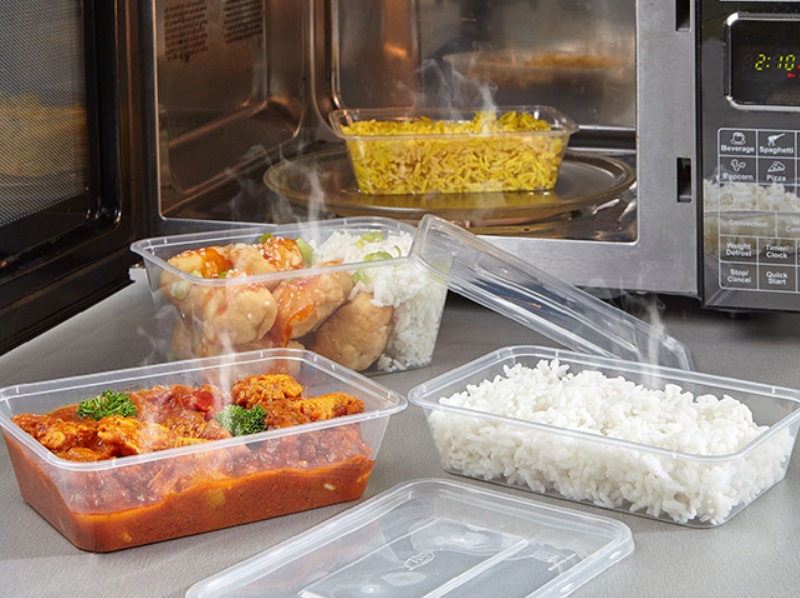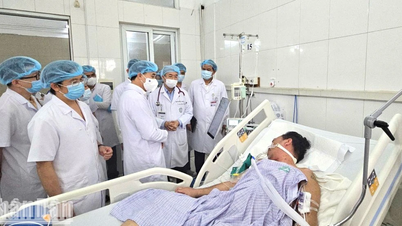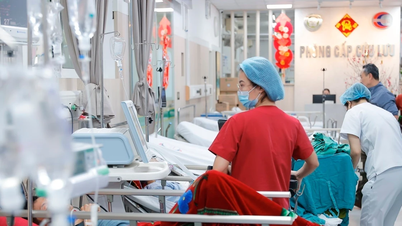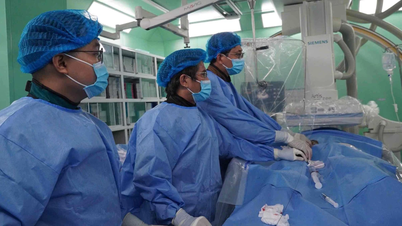Single-use plastic containers can leach dangerous chemicals into food, increasing the risk of heart disease, according to new research.

Plastic food containers can leak microplastic and nanoplastic particles into food - Photo: celebration.co.uk
In experiments on mice, researchers in China have found evidence that disposable plastic containers when holding hot food can release a variety of harmful chemical additives, affecting the body, starting with changes in intestinal bacteria.
Specifically, mice that swallowed this mixture of plastic pollutants for 3 months had swollen heart tissue mitochondria and bleeding between heart muscle cells, according to ScienceAlert on February 20.
The team's experiment was conducted after a survey of 3,179 elderly people in China. According to the survey, those with higher exposure to plastic were more likely to suffer from congestive heart failure (CCF) - a condition in which the heart muscle weakens and cannot pump as well as it should.
During a three-month experiment, the team had 24 mice swallow chemicals collected from hot plastic containers, including compounds such as BPA, phthalates, and several other plasticizers.
Results showed that the intestinal environment of the 24 mice had changed compared to the control group, including changes in the bacterial flora associated with inflammation.
Their blood also had increased levels of inflammatory messengers, which are risk factors for cardiovascular disease.
The research team does not yet know whether the same condition occurs in humans, but the discovery suggests that plastic containers may not be safe for storing hot food.
The study comes shortly after several recent studies showed that when plastic food containers are microwaved, microplastics and nanoplastics can leach into food, even if the containers are advertised as microwave-safe.
Scientists still do not know how many microplastic particles the human body absorbs when eating food stored in plastic containers. At the same time, it is unclear how long these microplastic particles remain in the body.
While waiting for more research on the issue, a research team at Ningxia Medical University (China) believes that it is necessary to avoid using plastic containers to store food at high temperatures.
Even bottled water, which is often stored at room temperature or lower, appears to be loaded with microplastics.
Other recent studies have also found microplastics accumulating in blood clots in the brain, heart and legs of humans.
Source: https://tuoitre.vn/xai-hop-nhua-dung-mot-lan-tang-nguy-co-bi-suy-tim-20250221111959436.htm



![[Photo] Prime Minister Pham Minh Chinh works with the Standing Committee of Thai Binh Provincial Party Committee](https://vphoto.vietnam.vn/thumb/1200x675/vietnam/resource/IMAGE/2025/5/12/f514ab990c544e05a446f77bba59c7d1)
![[Photo] Prime Minister Pham Minh Chinh receives Swedish Minister of International Development Cooperation and Foreign Trade](https://vphoto.vietnam.vn/thumb/1200x675/vietnam/resource/IMAGE/2025/5/12/ae50d0bb57584fd1bbe1cd77d9ad6d97)


![[Photo] Prime Minister Pham Minh Chinh starts construction of vital highway through Thai Binh and Nam Dinh](https://vphoto.vietnam.vn/thumb/1200x675/vietnam/resource/IMAGE/2025/5/12/52d98584ccea4c8dbf7c7f7484433af5)
























































































Comment (0)